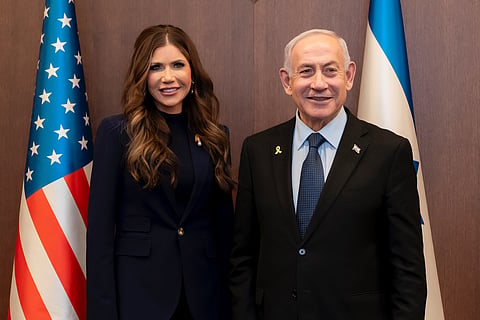

Doha has strongly criticized Israeli Prime Minister Benjamin Netanyahu for comparing Israel’s missile strike on the Qatari capital with the United States’ response to the September 11 attacks, calling the remarks “reckless” and “shameful.”
On the eve of the 9/11 anniversary, Netanyahu delivered a speech in English where he likened Israel’s actions to America’s pursuit of al-Qaeda following the 2001 attacks. “Governments cannot harbor terrorists,” he declared, justifying the strike on Doha by claiming Israel was targeting “terrorist masterminds” behind the October 7 Hamas assault. His remarks came shortly after missiles struck the Qatari capital, killing several Hamas figures along with a Qatari security guard, and causing widespread panic among civilians.
The Israeli strike on Doha represents a rare escalation, as Qatar has historically been viewed as a key mediator in the conflict between Israel and Hamas. The attack not only damaged Qatar’s international standing as a neutral broker but also raised alarms across the Middle East and beyond.
Qatar’s Ministry of Foreign Affairs condemned Netanyahu’s remarks, describing them as a deliberate attempt to justify aggression. The ministry stressed that Israel was fully aware that Hamas’s political office in Doha existed within the framework of mediation efforts approved by both Washington and Tel Aviv. “Unlike al-Qaeda, there was no international mediation or negotiation track involving the group after 9/11,” the statement noted, highlighting the false equivalence in Netanyahu’s comparison. The ministry further accused Israel of pursuing “treacherous practices” and exploiting global tragedies to rationalize military action.
The missile strike drew swift international criticism. Russia condemned Israel’s actions as a violation of international law and the UN Charter. Foreign Minister Sergey Lavrov stated that the attack underscored Israel’s “unwillingness to end the unprecedented humanitarian catastrophe in Gaza” and called it particularly cynical given Qatar’s central role in mediating ceasefire and hostage negotiations. Other regional actors have also expressed concern that targeting Doha could destabilize broader diplomatic channels crucial to achieving a long-term truce.
Since the outbreak of the Gaza war, Qatar has played a pivotal role as an intermediary between Hamas and Israel, hosting negotiations and channeling aid into the besieged territory. Doha’s involvement has been repeatedly supported by the United States, which has viewed the Gulf state as one of the few actors capable of maintaining open communication lines with both Hamas and Western allies. Israel’s strike, therefore, risks undermining not only bilateral relations but also the fragile mechanisms for dialogue that remain in place.
Netanyahu’s 9/11 comparison has sparked outrage well beyond Qatar, fueling debates about the legality of Israel’s military actions and the rhetoric used to justify them. Analysts note that equating Hamas with al-Qaeda is strategically aimed at garnering Western sympathy, particularly in the United States, where memories of 9/11 remain politically potent. However, critics argue this approach risks alienating mediators and escalating tensions at a time when diplomatic channels are urgently needed to address the humanitarian crisis in Gaza.